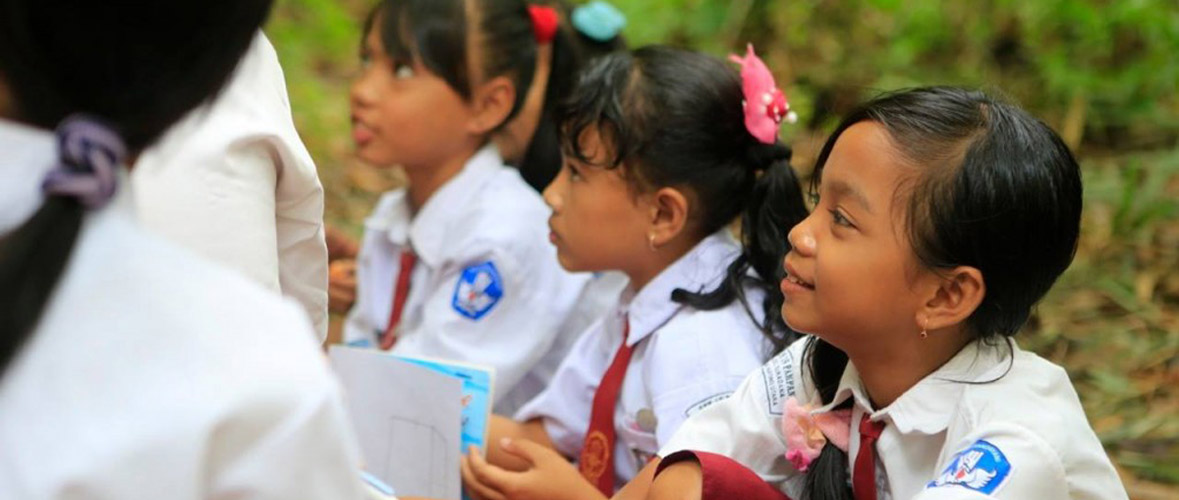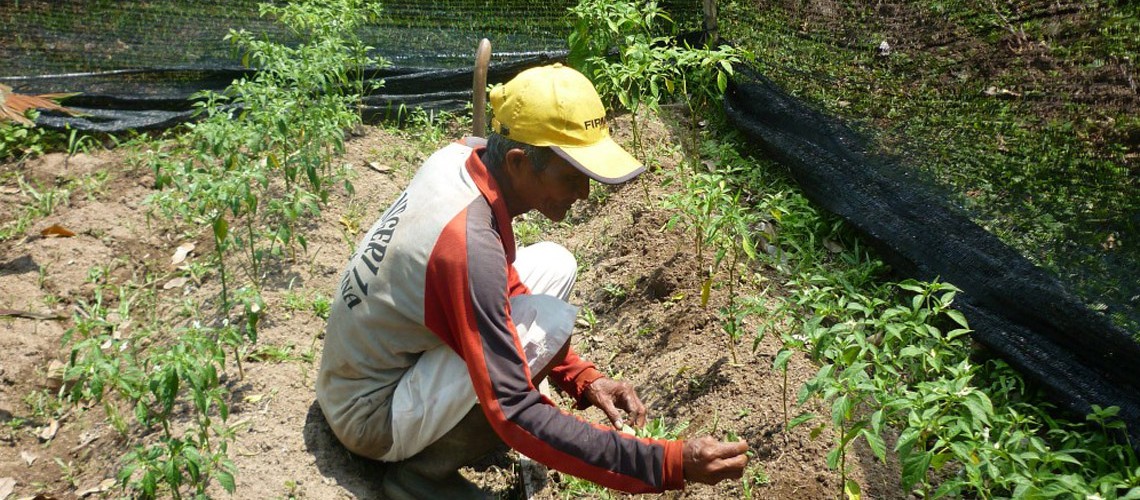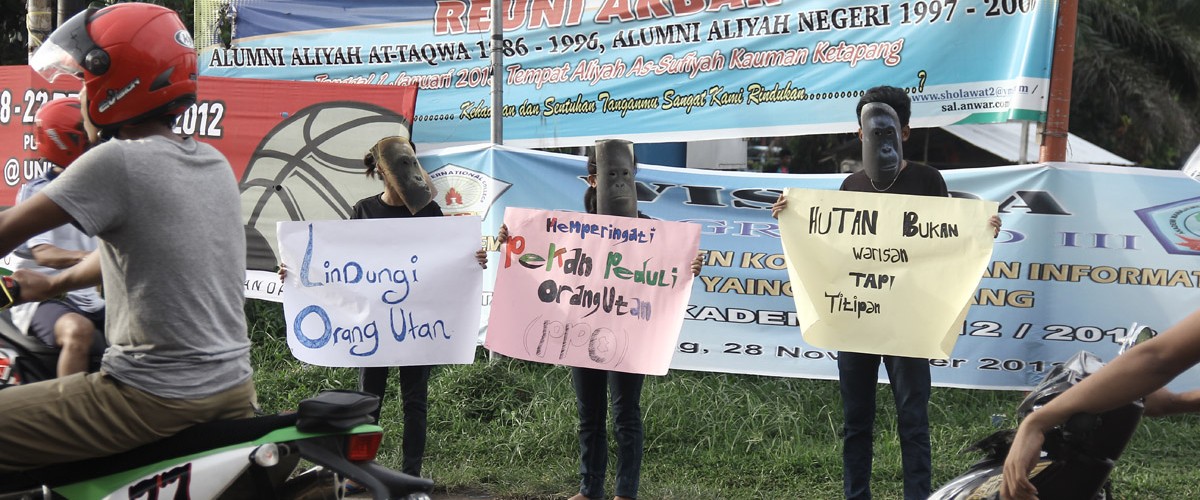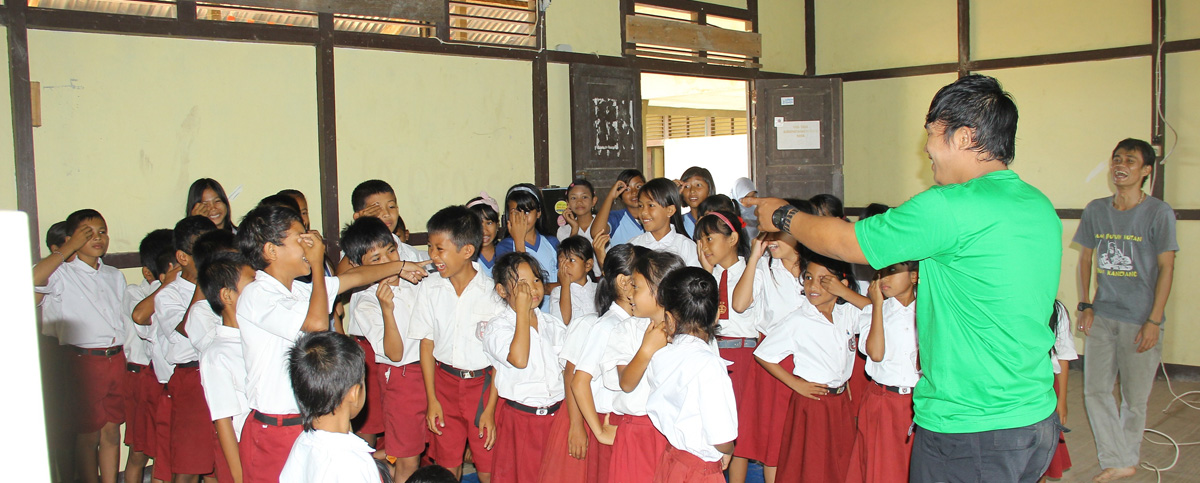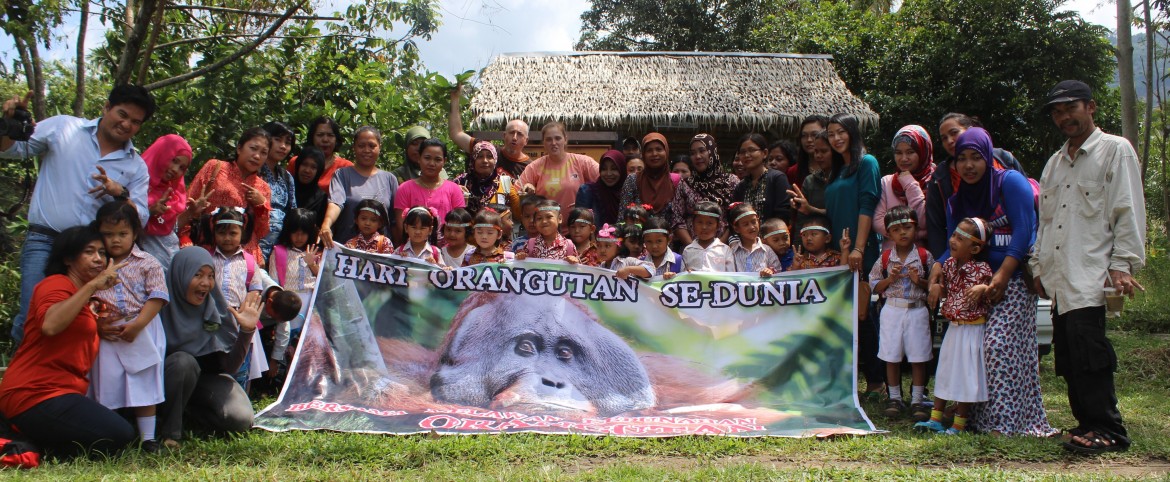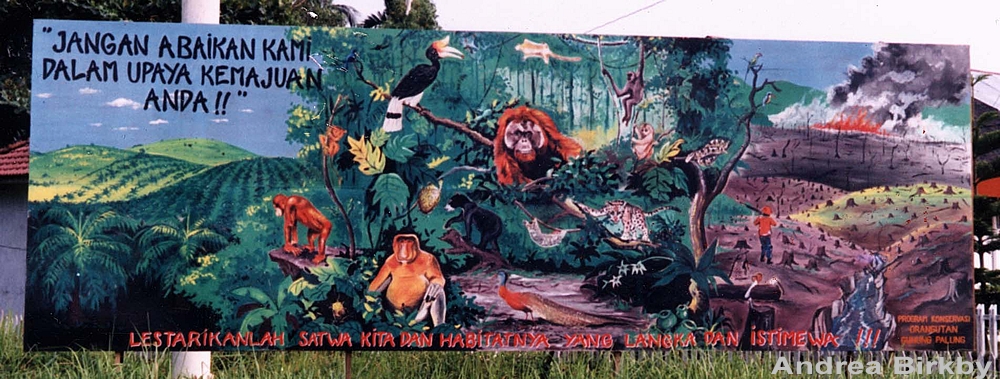By Natalie Robinson, Program Coordinator
Monday June 22nd was World Rainforest Day. This holiday, first celebrated in 2017, serves as a day to raise awareness and encourage action to save the Earth’s rainforests. To virtually spread awareness this year, GPOCP Executive Director Cheryl Knott was invited to join a live webinar hosted by Health in Harmony. The webinar, titled “Restore the World’s Rainforests”, featured other panelists from International Animal Rescue (IAR), Alam Sehat Lestari (ASRI), and Blue Ventures, and was moderated by Rhett Butler, the founder of the conservation news site, Mongabay. This timely discussion came as people around the world are grappling with the challenges and harsh realities surrounding the climate crisis, COVID-19 and racial injustice.

A common theme throughout the webinar was the importance of a holistic approach to conservation. Dr. Kinari Webb, Founder of Health in Harmony, stated that “the COVID-19 pandemic has illustrated for us all” something that she has been trying to teach the world for 20 years – that all of our well-beings are intertwined. This includes the well-being of humans around the world, as well as all the natural ecosystems. Dr. Karmele Llano Sanchez, Program Director of International Animal Rescue, who aims to protect, rehabilitate, and conserve wild orangutans, went on to reiterate that the only way to save animals is by protecting their habitat. She said you can’t separate humans and their health from the ecosystems in which they live. Dr. Cheryl Knott explained GPOCP’s holistic methods for conservation, speaking on the strengths of having mostly local staff, participating in community-based conservation, and our efforts to bridge the gaps that exists at the intersection of work in scientific research and conservation.
Mahardika Putra (Dika), Program Director at ASRI Medical Center, was another panelist that spoke on his work at the clinic on the outskirts of Gunung Palung National Park. When asked about his work and the sometimes overwhelming scale of the climate crisis we are in, he said “When you focus on problems, you will have more problems. But when you focus on possibilities, you will have more opportunities.” Dika went on to explain the importance of collaborations, which have been essential for the success of each of these organizations, stating that local communities already have solutions for most issues, but they are just missing the necessary resources, opportunities or knowledge. It is these long-term collaborations, and many people working together, which allow for successful conservation.

Moderator Rhett Butler next touched on the current events surrounding the Black Lives Matter movement in the US and around the world. Both the climate crisis and COVID-19 disproportionately affect marginalized people and Black and Indigenous People of Color (BIPOC). He posed a question to the panelists about how the conservation and non-profit sectors can do more be inclusive and achieve more racial justice. The final panelist, Dr. Vik Mohan, is the Medical Director at community-based marine conservation program, Blue Ventures, in Madagascar. Vik explained that one of the most important things is listening to communities. It is small communities that are the stewards of the Earth’s most magnificent biodiversity. These are some of the most vulnerable, poor, marginalized communities, and they also rely on these natural resources for their livelihoods. By putting such communities first and upholding their rights, we can address “some of the key fundamental inequalities that Black Lives Matter speaks to.”
Panelists were also asked about COVID-19 and its effects on their organization’s work. Cheryl explained that the current pandemic has further reinforced the importance of having local people running organizations. GPOCP has been fortunate to continue operating, unlike many other organizations that were forced to halt work and pull people out of field sites, because of our staff which can operate independently, either working remotely from their homes in Ketapang or within Gunung Palung. Others shared some of the negative and not-so-obvious effects of the pandemic, such as increased food prices and loss of jobs especially in the tourism sector, which has forced people to resort back to livelihoods like destructive fishing practices, illegal logging and mining, and hunting. These experts predicted that such environmental effects will likely be even more long-lasting than the health impacts of the virus.

On a more hopeful note, panelists were asked about some of the ways their conservation efforts can be assessed, and some of the accomplishments they have had in their respective programs. Each person shared some of their most inspiring examples of successes, and many shared similar messages about the active process of hopefulness, and the idea that real change is local and non-linear in its impact. Cheryl touched specifically on Ibu Ida, one of our Sustainable Livelihood Program’s lead artisans, who serves not only as an example of an inspiring success story, but also as an illustration of the importance of having local people independently conducting conservation work. Cheryl stated “One of the people who has inspired me the most is Ibu Ida. She learned to weave Pandanus mats from her mother as a child using these sustainable forest products, and she has really become a leader for conservation. She realized that the key to keeping [the production and sale of] these products going was to first help preserve and protect the forest… she now visits other villages and schools and teaches people the importance of protecting the forest and its resources.”
The webinar concluded with words from each panelist about one thing listeners could do that day in order to make an impact. Karmele encouraged listeners to fight for social justice. Dika asked listeners to pay it forward and support causes you believe in. Vik reminded us to consistently remember that we are all connected, and that this idea should guide everything we do. Cheryl advised listeners to learn, as learning costs nothing, and knowledge is power. Kinari concluded with the advice to say thank you and donate to the communities that are living in these important, vulnerable rainforest areas.
You can watch the recording of this webinar here as well as some of the other virtual events that went on for World Rainforest Day here.
